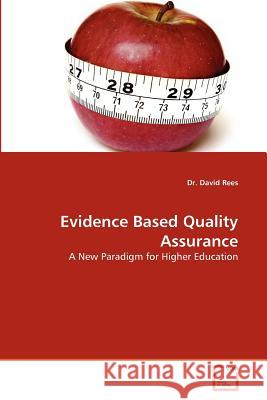Evidence Based Quality Assurance » książka
Evidence Based Quality Assurance
ISBN-13: 9783639378764 / Angielski / Miękka / 2011 / 140 str.
Quality is difficult to define and harder to measure. University programs have typically been evaluated using a traditional worldview of higher education, i.e. centred on faculty expertise and in-class instruction. Social, economic, and technological changes in the past decade have precipitated new approaches to program delivery which challenge the established measures of higher education quality. "Blended" programs represent a relatively new delivery model, combining on-campus and online delivery methods. Whereas universities have long-standing methods for evaluating the quality of programs, blended programs must be assessed using different criteria. What indicators, then, are appropriate? Using a logic model approach as the theoretical framework - which views programs as "systems" with inputs, processes, outputs, and outcomes - measures were developed and assessed by students, faculty, and program administrators. However, the results were not as expected and demonstrate the critical need to engage key stakeholders in the process of defining quality measures if they are to be accepted and used to enhance the quality of university programs.











